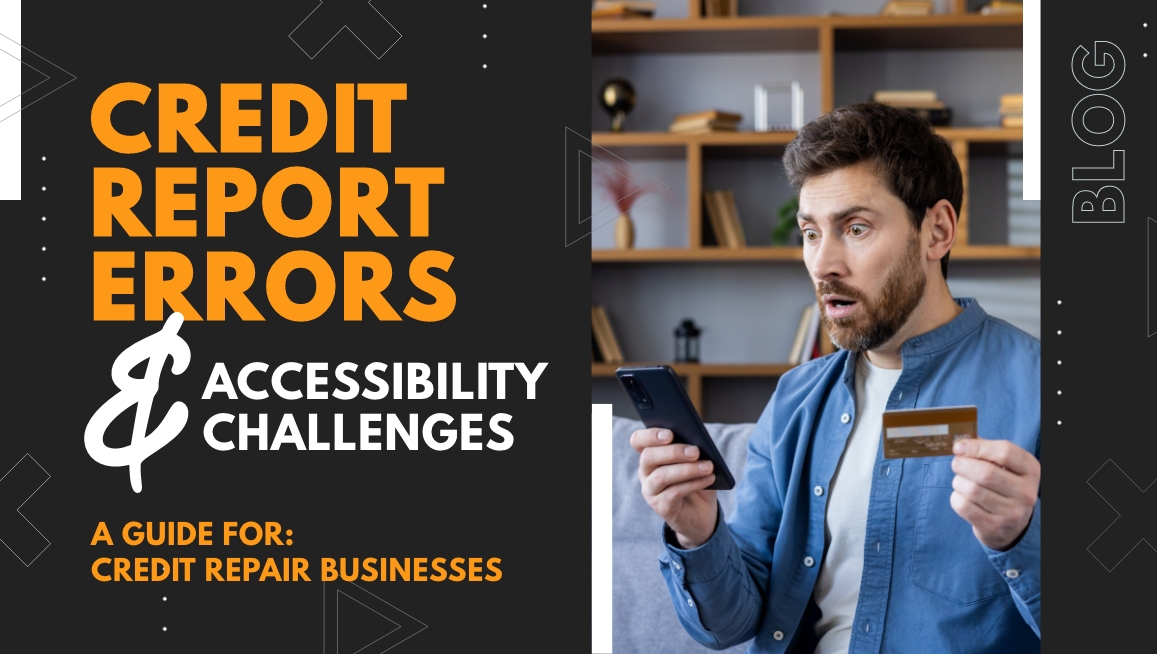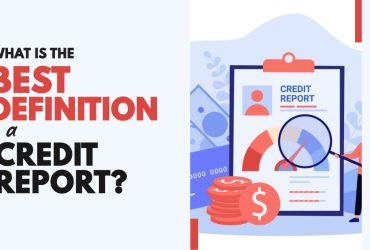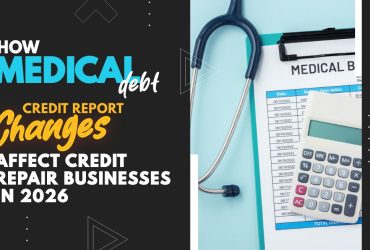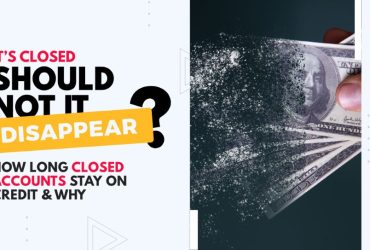Credit Report Errors and Accessibility Challenges: Guide for Credit Repair Businesses
by Almas Tariq
November 22, 2024
06:38 PM

A credit report is more than just a financial snapshot; it’s a powerful tool that dictates many critical aspects of a person’s life. From securing loans to renting apartments and even landing jobs, credit reports hold the key to countless opportunities. But when inaccuracies plague these reports, or when consumers cannot access their own financial data, the consequences can be severe. This issue is far from rare; studies show that nearly half of individuals who checked their reports found errors, and a staggering 25% struggled to access their reports at all.
These issues have escalated to the point that consumer advocates describe them as a “credit report error epidemic.” Errors range from minor details like incorrect addresses to severe inaccuracies, such as false claims of debt or missed payments. Compounding this problem, many consumers cannot access their credit reports due to systemic barriers, including confusing verification processes and outdated systems.
For credit repair businesses, these challenges offer both a call to action and an opportunity. Helping clients navigate these hurdles not only empowers them but also positions your business as a trusted ally in their financial journey. This guide provides a deep dive into the extent of these issues, the role of credit repair businesses in addressing them, and actionable strategies to improve client outcomes while fostering trust and credibility.
-
The Importance of Credit Reports in Financial Health
Credit reports are comprehensive records maintained by major credit bureaus—Equifax, Experian, and TransUnion. They track an individual’s credit history, including payment behavior, credit utilization, and public records like bankruptcies or tax liens. This information is used to calculate credit scores, which typically range from 300 to 850. Higher scores indicate better creditworthiness, granting individuals access to favorable financial opportunities.
A credit report includes several key sections:
- Personal Information: Name, addresses, Social Security number, and employment history.
- Credit Accounts: Details of open and closed accounts, balances, and payment history.
- Public Records: Bankruptcies, judgments, or liens filed against the individual.
- Credit Inquiries: A record of lenders or entities that have accessed the report.
Credit scores derived from these reports influence lenders’ decisions on whether to approve loans, set interest rates, or determine credit limits.
Why Credit Reports Are Critical for Financial Decisions
Credit reports impact almost every facet of a person’s financial life. For instance:
- Loan Approvals: Mortgage lenders and auto financing companies rely heavily on credit reports to assess risk.
- Interest Rates: Higher credit scores lead to lower interest rates, saving borrowers significant money over time.
- Credit Card Eligibility: Premium credit cards with better rewards are accessible to individuals with strong credit histories.
- Employment and Housing: Employers often review credit reports as part of the hiring process, and landlords require them to approve rental applications.
Even small inaccuracies in credit reports can have outsized consequences, from rejected loan applications to higher insurance premiums. For clients, understanding and correcting these reports is not just a priority; it’s a necessity. Credit repair businesses play an essential role in guiding clients through this process.
-
Understanding the Epidemic of Credit Report Errors
Errors in credit reports are not isolated incidents—they are widespread and affect millions of consumers. According to a recent study by Consumer Reports, nearly half of participants found at least one error in their credit reports. These inaccuracies range from incorrect personal details to significant financial misrepresentations.
Types of Errors Commonly Found
Errors in credit reports fall into several categories:
- Incorrect Personal Information: Errors in names, addresses, or Social Security numbers can create mismatched records.
- Misreported Accounts: These include payments incorrectly marked as late, accounts listed as open when closed, or false debt claims.
- Unauthorized Accounts: Instances of identity theft can result in accounts the consumer never opened appearing on their report.
- Duplicate Accounts: The same account may be listed multiple times, inflating debt figures.
Consequences of Errors
The financial implications of credit report errors can be devastating. Even minor inaccuracies can lead to a cascade of problems:
- Denied loan applications for mortgages or auto financing.
- Higher interest rates, increasing the cost of borrowing.
- Rejection for rental applications or credit cards.
- Difficulty securing employment in industries that require credit checks.
Consumers often don’t realize these issues until they’re faced with a rejection or financial loss. For credit repair businesses, addressing these errors is not just about fixing mistakes; it’s about preventing the ripple effects they cause in clients’ lives.
-
Challenges in Accessing Credit Reports
Although federal regulations mandate free weekly access to credit reports via AnnualCreditReport.com, many consumers face significant obstacles when attempting to retrieve their data. These barriers include:
- Technical Issues: Error messages often prevent users from completing the process, regardless of the browser or device used.
- Confusing Security Questions: Verification processes frequently trip up users with unclear or outdated questions, such as mortgage amounts that include taxes and insurance not reflected in client records.
- Outdated Records: Mismatched addresses or old employment histories can block users from passing verification checks.
The Impact of Limited Access
Without access to their credit reports, consumers cannot identify or address inaccuracies. This leaves them vulnerable to financial setbacks and prevents proactive financial management. For credit repair businesses, helping clients overcome these barriers is a vital service that can establish long-term trust.
-
The Role of Credit Repair Businesses in Addressing These Challenges
Credit repair businesses can assist clients in navigating the often-confusing process of accessing their credit reports. Steps include:
- Troubleshooting login and verification issues with AnnualCreditReport.com.
- Advising on alternative methods, such as requesting reports by mail or through direct contact with credit bureaus.
- Ensuring clients have the correct documentation, such as a government-issued ID, to meet verification requirements.
Disputing Errors on Behalf of Clients
Once clients access their reports, credit repair businesses can help identify and correct errors. This involves:
- Reviewing every detail of the credit report, from personal information to account histories.
- Collecting evidence to support dispute claims, such as receipts, payment confirmations, or correspondence with lenders.
- Submitting disputes to credit bureaus, either online or via certified mail, and following up to ensure timely resolution.
Educating Clients for Long-Term Success
Credit repair education is a cornerstone of effective credit repair. Teaching clients how to monitor their reports regularly and interpret the data empowers them to stay proactive about their financial health. Credit repair businesses should provide resources, such as workshops or guides, to enhance client understanding and independence.
-
Strategies for Resolving Credit Report Errors
Resolving credit report errors requires a methodical approach. Credit repair businesses should:
- Conduct Detailed Reviews: Scrutinize every section of the report for inconsistencies, such as outdated addresses or misreported payment statuses.
- Prepare Clear Dispute Letters: Draft concise, professional letters outlining the error and providing supporting documentation.
- Leverage Credit Repair Business Software: Automate dispute submissions, track progress, and securely store client data to enhance efficiency and accuracy.
By combining attention to detail with technological tools, credit repair businesses can streamline the resolution process and deliver better outcomes for clients.
-
Improving Accessibility for Clients
Accessibility is a persistent issue in credit reporting. Credit repair businesses can play an active role in advocating for systemic improvements while assisting clients on an individual level.
Advocating for Change
Partnering with consumer advocacy groups to highlight barriers in credit reporting can push for more user-friendly systems. Raising awareness through blogs, social media, and industry forums can amplify the issue and encourage regulatory action.
Providing Alternative Solutions
For clients who face barriers, credit repair businesses should offer alternatives, such as requesting reports by mail. They can also work directly with credit bureaus to resolve access issues, ensuring clients receive the information they need.
Building Client Trust
Helping clients overcome accessibility challenges demonstrates commitment and builds trust. When clients feel supported, they are more likely to remain loyal and recommend your services to others.
-
Regular Credit Report Monitoring
Regular credit report monitoring is critical for identifying errors early and preventing long-term financial damage. Credit repair businesses should encourage clients to review their reports at least annually, or more frequently if they are preparing for major financial decisions.
Providing tools and resources, such as monitoring services or educational workshops, helps clients stay vigilant. By promoting proactive habits, credit repair businesses empower clients and reinforce their role as financial allies.
-
Regulatory Updates and the Future of Credit Reporting
Recent regulatory changes, such as free weekly credit reports during the pandemic, signal progress toward greater accessibility. However, systemic issues remain, including outdated verification methods and inconsistent data accuracy.
Emerging technologies, such as AI-driven error detection and blockchain-based reporting systems, offer hope for improved accuracy and accessibility. Credit repair businesses that stay informed about these advancements will be better equipped to serve their clients and adapt to industry changes
Conclusion
The epidemic of credit report errors and access barriers poses significant challenges for consumers. For credit repair businesses, these issues present an opportunity to provide meaningful support. By guiding clients through access hurdles, resolving inaccuracies, and promoting regular monitoring, credit repair companies can make a tangible difference in their clients’ financial lives.
Investing in education, advocacy, and advanced tools like credit repair business software not only enhances client outcomes but also strengthens your business’s reputation. In a field where trust and transparency are paramount, addressing these challenges head-on sets your business apart as a leader in the credit repair industry.
References:
Table of Contents
Explore More Insights
Dive deeper into a wealth of knowledge. Discover a multitude of articles covering diverse topics, expert perspectives, and the latest trends. Feed your curiosity and expand your understanding.



